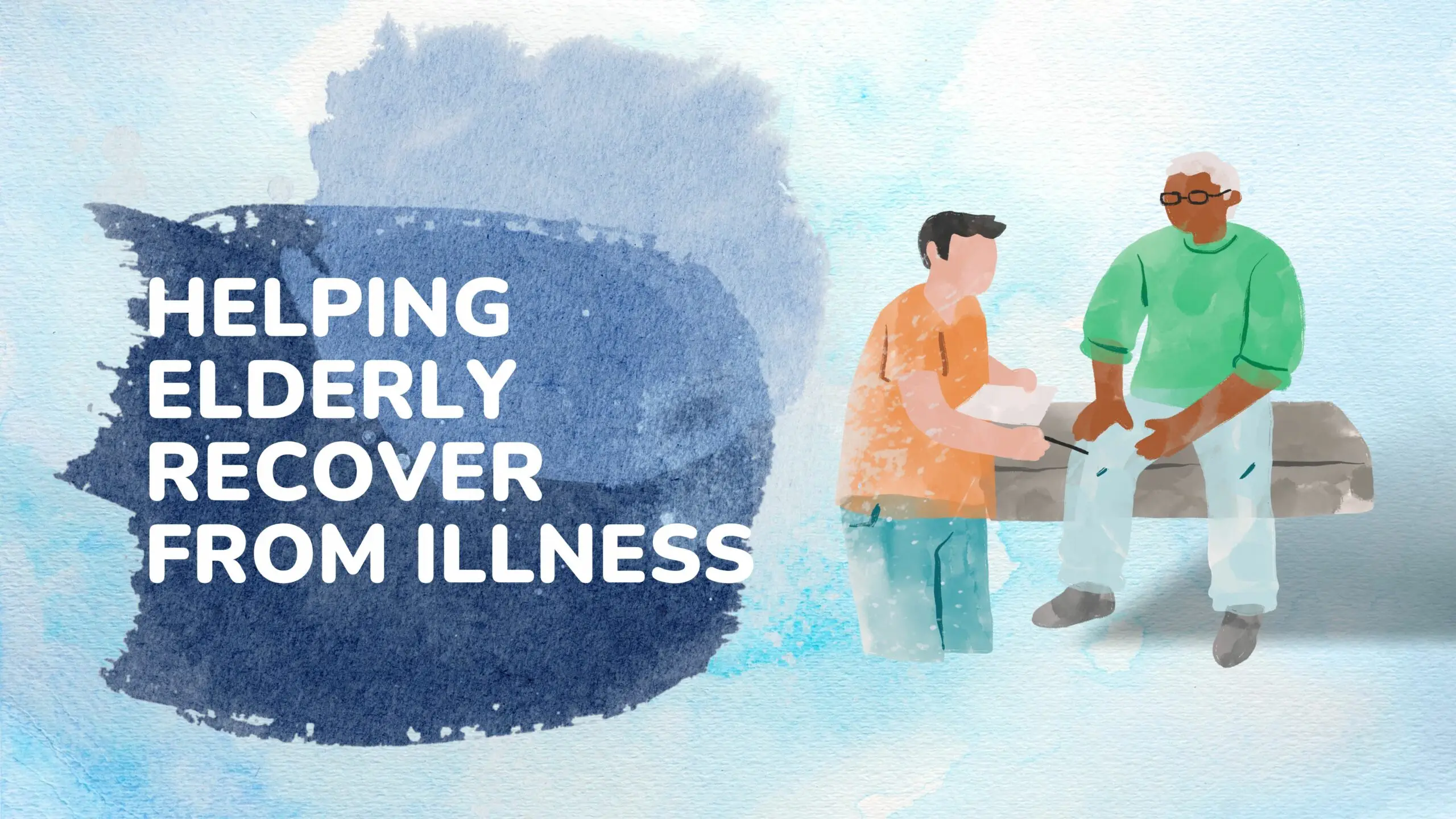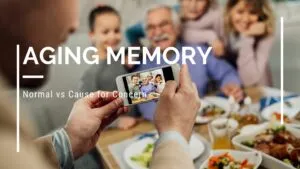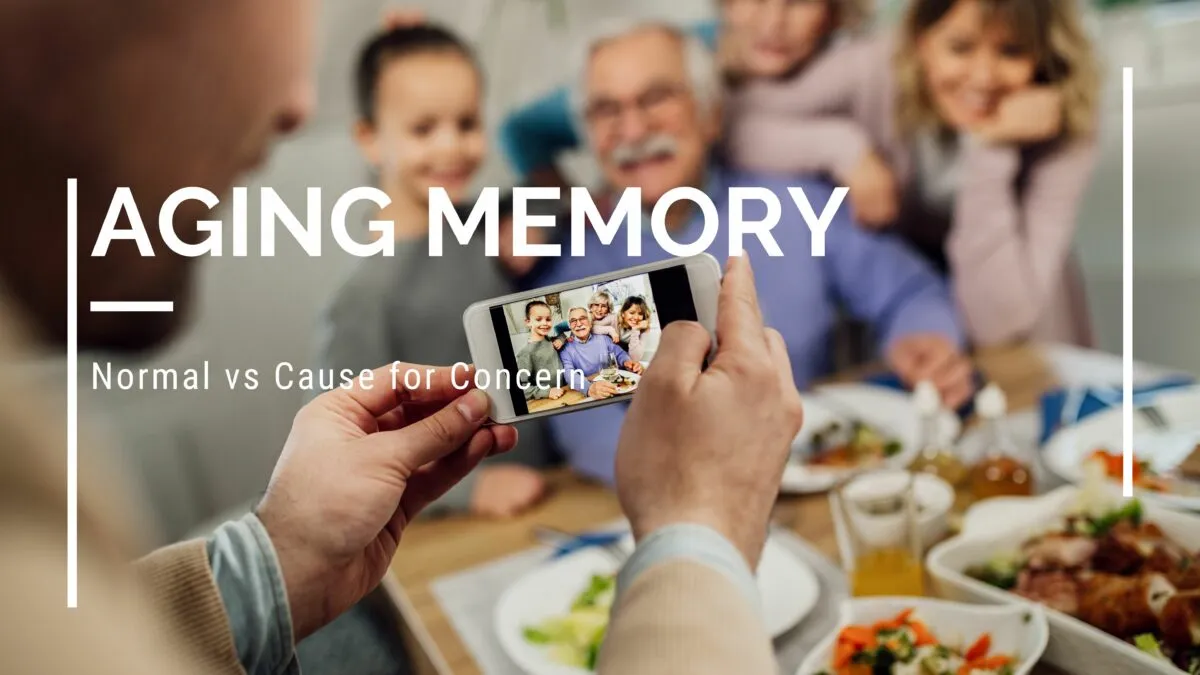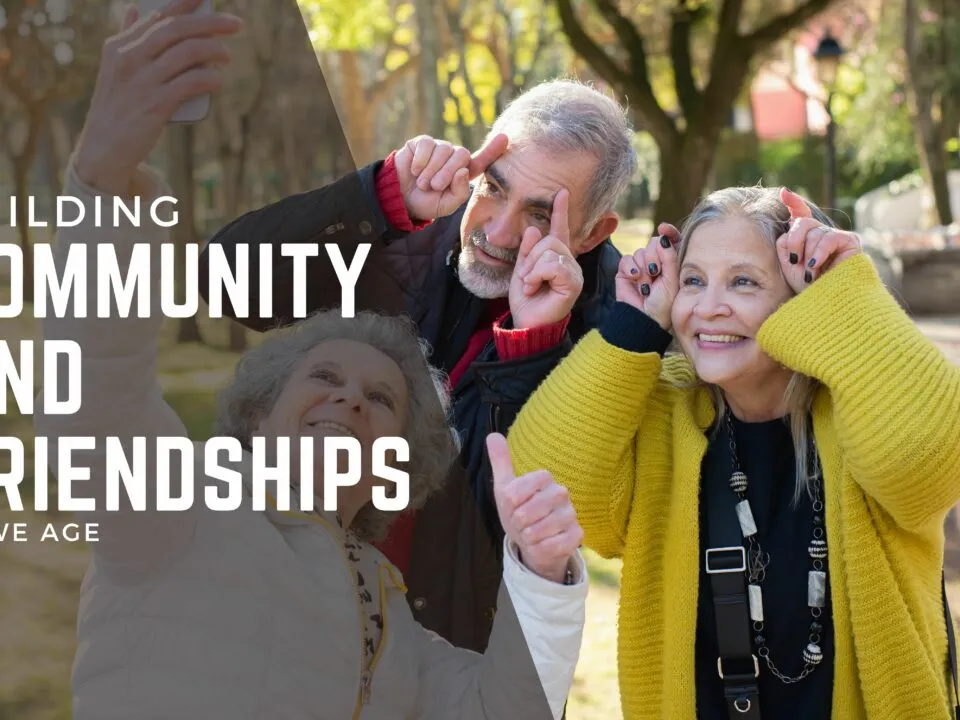
Helping Elderly Recover from Illness
February 20, 2023
Summer Season for the Elderly
May 3, 2023
When we age, it’s common to have lapses in memory or not be able to focus our attention as well. While it may feel annoying, it’s perfectly normal to experience. There are also various factors that contribute to how we age and if memory loss is even a problem at all. Genetics, physical and mental traumas, eating healthy, staying active, and regularly exercising your brain can all contribute to how you age and if memory loss or dementia, or Alzheimer’s will be a problem.

While most of us will experience little to no issues with memory, around 40% will struggle with memory loss after 65. This could be you forget where you put things, forget what day it is, can’t remember the word you’re looking for in a conversation, or even miss the occasional monthly payment. However, that doesn’t mean you have dementia or Alzheimer’s, nor does it mean that you’re incapable of making decisions or caring for yourself. Most folks will retain the skillsets they developed and will also retain their remote memory (ability to remember events from years ago), procedural memory (performing tasks), and semantic recall (general knowledge).
Here are 5 questions that can help you determine if you are struggling with age-associated memory impairment. Please note that this is not a diagnostic tool, but a tool meant to help you determine if you need to see a professional.
- Is the memory loss noticeably disrupting your daily life, such as with eating or bathing?
- Are you having difficulty learning and remembering new things?
- Are there any medical conditions or medications that could be causing memory loss?
- Are you becoming more confused about time, people, and places?
- Are you asking the same questions over and over again?
If your memory is starting to worsen and you find that you’re becoming more forgetful, losing things more often, are easily distracted, or are becoming unable to do more complex tasks, this is not normal aging. However, it’s not necessarily dementia. It could be something else called mild cognitive impairment (MCI). While this can lead to dementia later, it doesn’t mean that it will. It’s recommended to start visiting your doctor every 6-12 months for a checkup. It’s important to note that the World Health Organization estimates that between 5-8% will struggle with dementia after turning 65 years old. It is not something to be constantly worried about as you age. But remember that there are things to do that can help you to work your brain and keep yourself healthy. You can:
- Put your daily used things in the same place every day, like keys, glasses, and wallets.
- Don’t consume large amounts of alcohol and avoid it as much as possible.
- Learn a new skill that exercises your brain.
- Plan tasks, make to-do lists, and use memory tools such as calendars and notes.
- Utilize reminders on your phone or on physical calendars, or both!

While health has no guarantee, remember that trying out unproven treatments isn’t the answer and can cause more harm than good. Always visit your doctor if you have concerns. There are also so many resources available for those living with dementia and those who are providing care to loved ones with dementia. Visit our resources down below for some great tools and important information!
Check out our socials!
Resources
https://alzheimer.ca/en/about-dementia/do-i-have-dementia/differences-between-normal-aging-dementia
https://alzheimer.ca/en/about-dementia/how-can-i-reduce-risk-dementia/brain-healthy-tips-reduce-your-risk-dementia
chrome-extension://efaidnbmnnnibpcajpcglclefindmkaj/https://alzheimer.ca/sites/default/files/documents/memory-tips-and-tricks_0.pdf
https://www.apa.org/topics/aging-older-adults/senior-forgetfulness
https://my.clevelandclinic.org/health/articles/11826-memory-problems-what-is-normal-aging-and-what-is-not
https://www.nia.nih.gov/health/memory-forgetfulness-and-aging-whats-normal-and-whats-not




